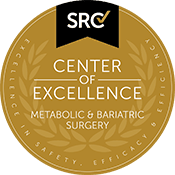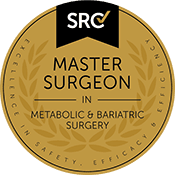
- Expertise
- Compassion
- Success
Lose the Weight and
Gain Back Your Life!
What is Binge Eating Disorder?

Many of us overeat, from time to time, but some people overeat regularly, even when they want to stop. Frequent overeating and the inability to stop eating can lead to binge eating disorder and serious health risks. Here are some commonly asked questions — and answers — on binge eating disorder.
What Is Binge Eating?
Binge eating means eating a large amount of food in a short period of time; for example, eating two large meals within two hours. Binge eating is common; many people overeat during holidays or when they feel stressed.
What Is Binge Eating Disorder?
Someone with binge eating disorder frequently overeats within short periods of time and feels a lack of control over their eating.
How Common Is Binge Eating Disorder?
Binge eating disorder affects millions of people each year. According to the National Eating Disorders Collaboration, binge eating disorder is more common than both anorexia and bulimia.
What Causes Binge Eating Disorder?
People develop binge eating disorder for a number of reasons, including genetics as well as psychological, emotional and social factors. Binge eating disorder affects both men and women of all ages and backgrounds.
What Are the Symptoms of Binge Eating Disorder?
A person with binge eating disorder may show one or several of the following eating-related symptoms:
- Eating a large amount of food in a short period of time
- Eating uncontrollably, even if not hungry
- Eating until uncomfortably full
- Eating faster than usual
Other symptoms include:
- Guilt after overeating
- Tiredness
- Trouble sleeping
What Are the Health Risks of Binge Eating Disorder?
People with binge eating disorder put themselves at risk for depression and anxiety. Other health risks include chronic kidney problems, high blood pressure and high cholesterol, which can then lead to stroke, diabetes and heart disease.
How Is Binge Eating Disorder Treated?
Fortunately, binge eating disorder is treatable and a full recovery is possible. Possible treatments include nutritional management, psychotherapy, antidepressants, and counseling. Not every treatment is suitable for every person. If you have been diagnosed with binge eating disorder, consult with your doctor about what treatment may be best for you.
A Higher Risk for People with Obesity
While people of all body shapes and sizes can be diagnosed with binge eating disorder, individuals with obesity have a higher risk for developing the disorder. Advanced Surgicare offers people with obesity several bariatric surgery treatment options to help them achieve healthier lives. To learn more about your weight loss surgery options, schedule an appointment with Dr. V. Kuzinkovas by calling 1300 551 533 today.


